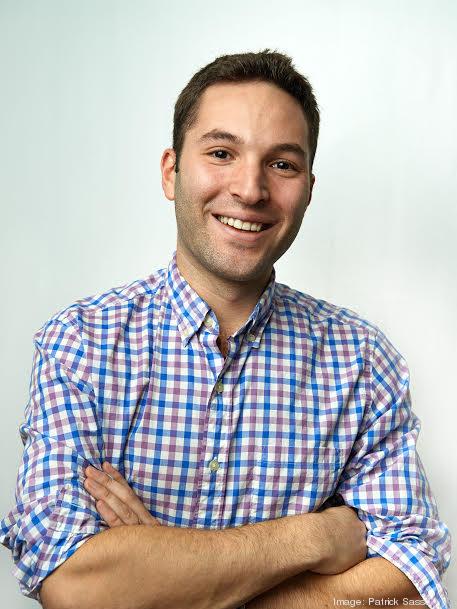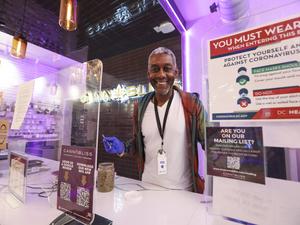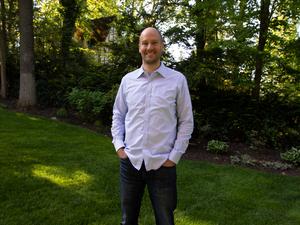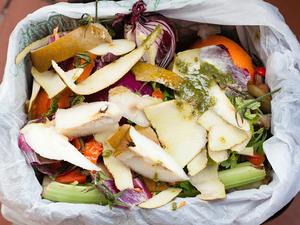
As D.C.’s UrbanStems Inc. nears Mother’s Day, its biggest revenue-generating holiday of the year, the flower and gift delivery startup is laying groundwork for more growth.
The business, which spent the first two years of the Covid-19 crisis adapting to changes in customer behavior and adjusting to supply chain disruptions, must now evaluate what the third year of the pandemic means for people’s gifting habits — “and being sure that we’re there for them in those moments,” CEO Seth Goldman said in an interview.
It requires that the company grow its customer base, add to its footprint, expand its hand-delivery service, promote the brand and invest in its digital platform, Goldman said.
And it starts with the week leading up to Mother’s Day, when UrbanStems sees business balloon seven times its average weekly volume. In addition to hiring up ahead of the holiday, it’s “a team effort” for the 140-person company that involves initial conception with the merchandising team, sourcing from farms, designing and procuring the plants, preparing the operations team, putting together a marketing plan and getting the website ready for an influx of orders, Goldman said. “That takes a big effort across the board, and it puts a lot of pressure on everyone involved in the operation.”
But UrbanStems is also looking beyond Sunday. It already serves the lower 48 U.S. states through its next-day service. Now, Goldman said, the company is finalizing where to add hand-delivered markets, which now include D.C. and New York.
It’s also “eyeing a second facility in another part of the country” which, Goldman said, he expects to finalize in a few weeks, declining to share more at this point. That’s after the company added 50,000 square feet to its footprint with a new warehouse in the Hyattsville area. He declined to disclose revenue and whether the business is profitable, but said it’s grown eight times in the last four years and is “looking to continue to scale over the next two years.”
Surviving the pandemic
But pandemic-era dynamics, including supply chain disruptions, have hurt.
Though farmers continue growing and harvesting flowers, distribution snags and other delays have made it tougher to stay on time with deliveries.
“Anything where you’re moving physical goods has gotten significantly more expensive, so we’re trying to better understand our costs, how they’re changing, how we can mitigate that,” he said. The company is also figuring out how to “make them as cost-effective and efficient as possible without increasing costs to the consumers,” and if it must place orders at a different cadence, carry more inventory or switch to vendors with better availability, Goldman said.
That’s as growth has slowed across e-commerce, including for UrbanStems, because people are going back to stores, he added. “We are acutely aware of that and figuring out how to adapt again.”
The company saw demand “collapse” in Washington and New York, its two biggest markets, when the Covid crisis hit in Mach 2020, Goldman said, adding that 50% to 60% of its orders “disappeared overnight.” Then ordering patterns shifted, as people started working from home outside of city centers.
“That was a very scary time for a couple of weeks,” but soon “we saw demand start to accelerate as the need to shop online, as well as the need to send gifts, got stronger,” he said. “So we were able to really introduce UrbanStems to a large number of new customers and get them to enjoy what it was like to send flowers or plants with a few clicks and have it delivered the next day.”
Entering the next phase
UrbanStems now counts hundreds of thousands of customers and is “getting closer to a million,” Goldman said, declining to share specifics. That will continue growing, he said, as the company focuses on building brand awareness.
The work involves creating educational videos on social media to educate people about the products and how to care for them, he said. “So we’re constantly thinking about new ways to reach the consumer without simply paying for those eyeballs, and that’s going to become more and more important in this new world.”
The startup has raised $48 million in funding to date, including $20 million a year ago and $12 million in 2019, when Goldman, then the chief operating officer, moved to the top slot. He replaced co-founder Ajay Kori, who remains its board chair as he advances two other local ventures: Allay Lamp and Novilla Pharmaceuticals, both former Startups to Watch.
UrbanStems is not currently fundraising, but that could change, Goldman said. “I think once we get through our busy season, we’ll take a look at the growth initiatives for the next year and determine our capital needs.”
Going forward, the company is figuring out how to make it easier to send a wider array of gifts, faster “without overwhelming” the consumer, Goldman said. It’s talking with growers about different types of stems, expanding its plant and dry flower business lines, and planning to invest heavily in digital to make the shopping and subscription experiences easier.
As to an exit? For now, he’s focused on the customer experience, Goldman said. “If we create a fantastic business over the next two years, the exit will become pretty clear.”




